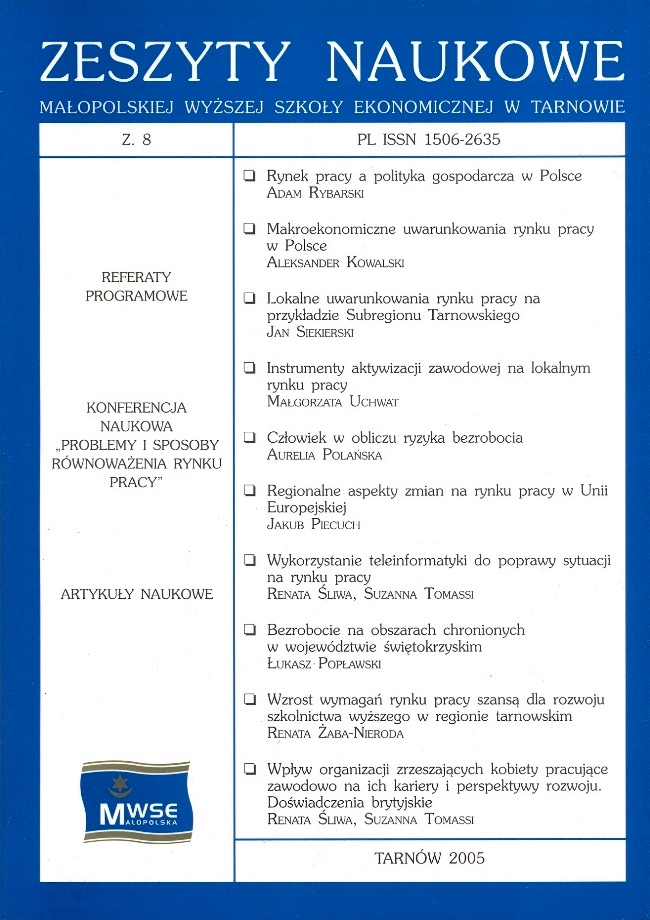Abstract
The article deals with the very topical issue of the situation of professional women in the business environment. It has been only a century since females openly entered the male world of business and from the beginning they had to learn how to compete and fight for themselves in a male-dominated arena. Professional women have become more and more visible, especially in the last twenty years, with the number of them in high positions slowly increasing. The slow speed of this increase ultimately lead the to introduction of equal rights legislation for both sexes in the workplace. However, legislation on its own will not help women achieve equality. To be successful in their professional lives they need to benchmark with their successful male counterparts. One of the most common tools used by men is networking. It gives them priceless contacts, guarantees exchange of information and opens doors to prospective deals that would remain closed to 'outsiders'. If men can be successful, then why not women? They can, and that is why over the last 15-20 years we have been watching the growing number of female professional networks. They have been increasing across all professions and fields. On the other hand, let’s not forget that what suits many does not suit everybody and there are high profile women who do not identify themselves with networks. They do not feel a need to have membership of 'clubs' and one should respect it.
References
Budrowska B., Duch D., Titkow A., Szklany Sufit: Bariery i Ograniczenia Karier Polskich Kobiet, Raport z Badań Jakościowych, Instytut Spraw Publicznych, Warszawa 2003.
View in Google Scholar
Caine B., English feminism: 1780-1980, Oxford University Press, Oxford, 1997.
View in Google Scholar
Dench S., Aston J., Evans C., Meager N., Williams M., Willison R., Key Indicators of Women's Position in Britain, Institute for Employment Studies, Women & Equality Unit, London 2001.
View in Google Scholar
McCarthy H., Girlfriends in High Places, Demos, Londyn 2004.
View in Google Scholar
Ragins B., Townsend B., Matthis M., Gender gap in executive suite: CEOs and female executives report on breaking the glass ceiling. Academy of Management Executive, 1998, s. 28-42.
View in Google Scholar
„Rocznik Statystyczny Rzeczypospolitej Polskiej 2002", Główny Urząd Statystyczny, Warszawa 2002.
View in Google Scholar
Watson S. The truth about female friends, “The Guardian”, 31/10/2002.
View in Google Scholar
Welsh M., Networking, the Great new Way for Women to Get Ahead, Harcourt Brace Jovanovich, Nowy Jork [w:] McCarthy H. Girlfriends in..., 1980.
View in Google Scholar
Women and Men in Britain: Professional Occupations, Equal Opportunities Commission, Manchester 2001.
View in Google Scholar
„Key facts on women in the labour market" http://www.womenandequalityunit.gov.uk/women_work/key_facts.htm
View in Google Scholar
„Polish Women in the 90s", http://free.ngo.pl/temida
View in Google Scholar
„Women at the top - the reality", http://www.womenandequalityunit.gov.uk/women_work/women_top.htm
View in Google Scholar
http://europa.eu.int/comm/research/science-society/women-science/women-science_en.html
View in Google Scholar
http://www.civil-service.gov.uk/statistics
View in Google Scholar
© Copyright by Małopolska School of Economics in Tarnów. The articles are available under the Creative Commons Attribution NonCommercial-NoDerivatives 4.0 International License


